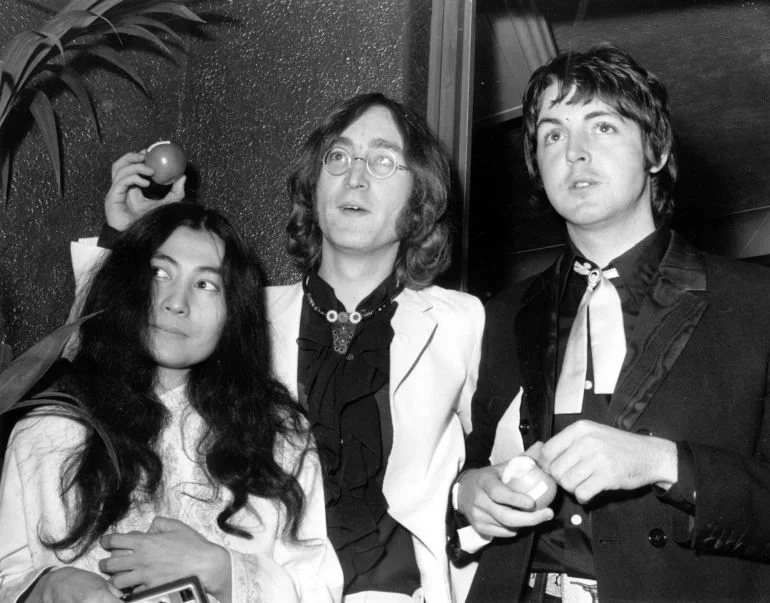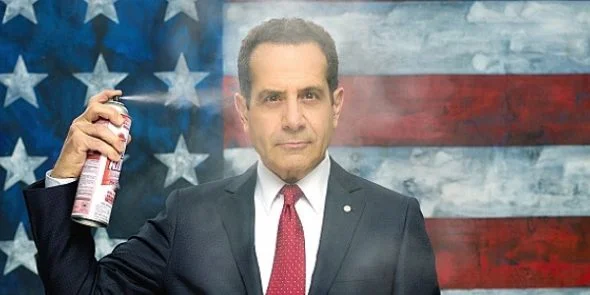By The Landlord
“A lean compromise is better than a fat lawsuit.” – George Herbert
“The devil is compromise.” – Henrik Ibsen
“All government, indeed every human benefit and enjoyment, every virtue, and every prudent act, is founded on compromise and barter.” – Edmund Burke
“Don't compromise yourself. You are all you've got.” – Janis Joplin
What happened to the art of compromise? We appear right now to live in the world of increased polarisation, or all or nothing, of argumentativeness and extremity, of unaccountability and non-listening, where social media and politics, fuelled by economic hardship, have stoked up the idea of either being in or out, one thing or the other, pro-EU or Brexit, Trump or anti-Trump, climate-change environmentalists, or climate deniers, perceived truth tellers or liars, interchangeable according to your tribe.
Someone is right, someone is clearly wrong. But has media killed the art of mediation? Has truth become a brand? What happened to the mindset of being able to accept and feel comfortable with being more than one thing at once – to be both/and rather than either/or? Not so long ago it was normal to be, for example, British and European, to be Mexican and American.
Bridges not walls?
And at the same being one thing didn’t automatically bracket you into another, so being Jewish didn’t automatically make you Zionist, any more than being Muslim didn’t automatically make you a terrorist. But the monster extremist mindset at large is not only excluding compatibility of backgrounds, it is also glueing stereotypes into one another, the lunatics taking over the asylum. It is if a disease of extremity has overtaken the world of politics, very much like in the darkly humorous, Washington-based satirical political TV series BrainDead, in which the brains of politicians are half eaten by alien ants, causing Republicans and Democrats to become increasingly extreme in their views and behaviour, the plan being they destroy each other eventually so those ants can take over. Perhaps something has eaten half of Congress’s brain, and there’s a tiny ant driving Donald Trump’s half-eaten grey matter. Or maybe has he always been a narcissistic, egotistic, greedy, incompetent, ignorant half-wit.
BrainDead, the TV series in which the rational, conciliatory parts of politicians’ brains are eaten – by alien ants
But with music, something entirely different is now the case. When I was growing up, music appeared to be far more tribal. There had already been the notorious incidents and feuds of mods versus rockers (although more hyped than reality) but by the time I was primary school I clearly remember a massive fight in the playground between two gangs of girls – those who liked the Bay City Rollers against the Marc Bolan crowd. Goodness me, it was vicious - by the end there here was ripped tartan and glitter and hair everywhere.
Bay City Rollers or die
And later the peer pressure was to be a punk, a new romantic, a goth, a ska skinhead, or a heavy metaller, but of course, in secret, or with your friends, we were are also swapping and enjoying records by Kraftwerk and all sorts of other music outside of your apparent realm of taste. But now for music lovers of any age, it’s OK to like everything. Is that because of the sheer availability of music, allowing us to develop ever more eclectic and broadminded tastes, or the world of culture has become more sophisticated and liberal anyway?
In parallel it’s also fascinating while that some football fans are perfectly welcoming of players from all over the world, but that liberal acceptance for the skilful Johnny Foreigner isn’t always shared in politics or normal life, even though they really offer far more value to society as doctors, nurses or engineers. And while it is still socially acceptable to fervently support your national team as well your local team, it’s also normal to jeer at the opposition club player who next week you’ll cheer at when he’s playing for England. Or sing the praises of a player or manager who the previous year, before he joined your team, was a bitter rival. So personal compromise comes in all forms. Tribalism and hypocrisy are happy bedfellows. But still, your team is your team, and is not a brand to switch. And yet while it’s impossible to support two rival teams at once, well, you can always get your classic compromise - the match-day scarf, on which both teams are boldly emblazoned. I’ve always found that a bit weird. You don’t get a “Tories-Labour” scarf, do you?
Get your match-day scarves! Strange souvenir or supporter compromise?
But as that other sportsman, the racing driver Alain Prost put it: “You can't always have the best team. It's always a compromise.”
This week it’s all about the C-word in song, but does it strengthen or weaken us? You can’t always get what you want, but can you give a little and take it a little? Can we work it out, or should you do it my way? Compromise crops up in many song lyrics – a quick internet check indicates over 2,000 results and that doesn’t include synonyms such as adjustment, accord, concession, making a deal or settlement. And compromise is one of life’s great necessities. It is the fulcrum on which relationships, marriages, friendships, business, international diplomacy balance.
But in the creative process, it is the most uncompromising artists we often admire most, the ones who go their own way, without remorse, the loners refusing to bow to record company pressure, to push the boundaries of their own artistic endeavour, from Scott Walker to Kate Bush, Captain Beefheart to Tom Waits to PJ Harvey. But putting together an album, involving a number of people, other musicians, producers and more must involve a degree of compromise? And the same goes for the battles between the great songwriting partnerships, Lennon and McCartney, Jagger and Richards, Plant and Page, King and Goffin, Andersson and Ulvaeus, Leiber and Stoller, Bacharach and David, Rodgers and Edwards, Whitfield and Strong, Holland, Dozier and Holland. Behind studio door huge fights and arguments and eventually compromises shake down into brilliant music. So this week we’re looking for how compromise is expressed, subtly or explicitly, about relationships, romantic or creative, or any other context in lyrics.
So it’s interesting how different artists are perceived as uncompromising as a strength, and yet clearly they managed to achieve what they wanted through collaboration. And yet the issue divides. “Once you’ve signed to a label you compromise,” admits Talib Kweli.
“Yes. The record business is dangerous to the health of bands and individuals, which is something I'm just now learning. But it's not dangerous in any of the ways people think; it's not that they try to make you compromise your art. That's not the problem,” adds T Bone Burnett.
“Well, David Bowie worked with Brian Eno and dressed up in extraordinary clothes, but he was also a brilliant songwriter who captured the thoughts of a generation. He was hugely successful, without compromise,” says Natasha Kahn, aka Bat for Lashes, and yet in that very statement is a whole narrative of collaboration.
Peter Hook meanwhile expressed his relief after leaving New Order. “It's really nice to be able to do what I'm doing without having to compromise with another musician.”
Viv Albertine is less compromising in what for her was a male-dominated business: “Most female artists – to do what you have to do and to be as honest as you have to be, to be as selfish as you have to be, as tunnel-visioned as you have to be to make art, not entertainment – you can't compromise, really.” And yet “really” it is so hard to avoid.
Viv Albertine. ‘You can’t compromise’
Surely in the world of film and especially where music is involved, compromise is inevitable? The actor Matt Dillon sums up the contradiction: “One thing that everybody told me about directing was, 'Never compromise'. And the whole job is a compromise. So it's very paradoxical. How do you not compromise when the whole thing is about compromise?”
“All the arts, to varying degrees, involve some kind of a compromise. This being so, how far need the radio dramatist go to meet the public without losing sight of himself and his own standards of value?” asks Louis MacNeice.
Novelist Irvine Welsh is also in the Bar today. “Film-making is a much more collaborative thing than literature, so you know you're going to be working with a group of people at the start. You know it's going to be a compromise.”
“But film-makers should remain true to their principles and never compromise, there is a real revival in the British film industry but there is a danger that we will become colonial servants of Hollywood. We need to maintain our own integrity,” says the steadfast improvisational director, Mike Leigh.
“I agree! The only condition of fighting for the right to create is faith in your own vocation, readiness to serve, and refusal to compromise,” shouts the incomparable Andrei Tarkovsky.
So compromise, ironically, is a divisive issue for all in music, other creative endeavours, as well as politics. But where do draw the line?
“A good compromise, a good piece of legislation, is like a good sentence; or a good piece of music. Everybody can recognise it. They say, 'Huh. It works. It makes sense.’” says Barack Obama.
“All compromise is based on give and take, but there can be no give and take on fundamentals. Any compromise on mere fundamentals is a surrender. For it is all give and no take,” says Mahatma Gandhi.
And on the other side of the political spectrum, Republican economist Alan Greenspan: “Unless you are willing to compromise, society cannot live together.”
“My father ran for Congress in 2004, and I got a sense that there is no way to achieve much success without a certain amount of compromise,” adds George Clooney.
“That is why everyone in politics, and we do it, must make sure that they do not depend on one single interest group. A good compromise is one where everybody makes a contribution,” sums up Angela Merkel.
So then, it’s time to compromise this introduction no more and turn over the wisdom and balanced judgement of this week’s guest playlister, who will no doubt reach a compromise without compromising in the least – the sagacious severin! Place your songs in comments below in time for last orders on Monday 11pm UK time, for playlists published on Wednesday.
New to comment? It is quick and easy. You just need to login to Disqus once. All is explained i in About/FAQs ...
Fancy a turn behind the pumps at The Song Bar? Care to choose a playlist from songs nominated and write something about it? Then feel free to contact The Song Bar here, or try the usual email address. Also please follow us social media: Song Bar Twitter, Song Bar Facebook. Song Bar YouTube. Subscribe, follow and share.






